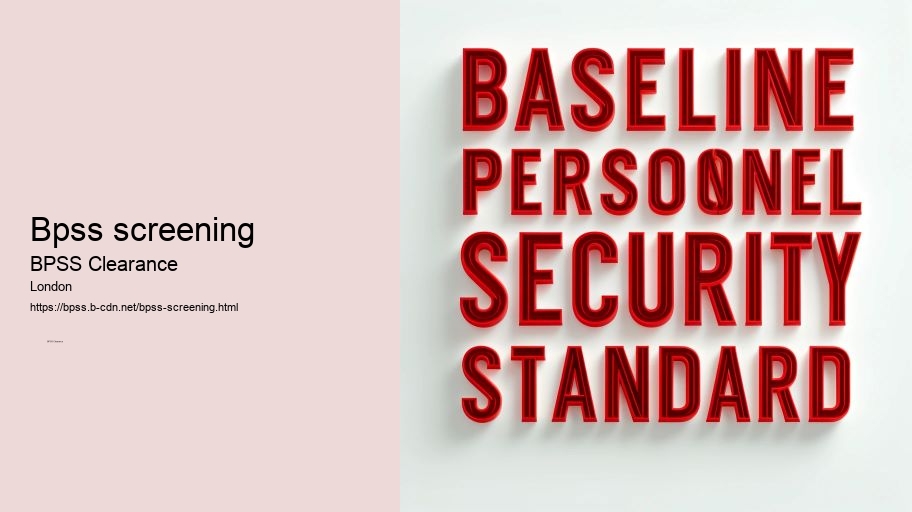
Several factors can influence the duration of a BPSS check. These include the accuracy of the information provided by the applicant, the speed with which previous employers respond to verification requests, and the specific requirements of the employing organization.
Individuals applying for National Security Vetting (NSV) must undergo a BPSS check as a prerequisite. Roles in sectors such as energy, communications, and finance necessitate BPSS clearance to guarantee the protection of sensitive information.
The timeline for conducting these checks also differs. Security breach risks BPSS checks are generally quicker to complete, often within a few weeks, reflecting their role as a baseline security measure. BS7858:2019 checks, due to their more detailed nature, can take significantly longer — up to 12 weeks or more — as they require gathering more comprehensive information and thorough verification processes from multiple sources.
BPSS checks are typically required for individuals working in, or on behalf of, the UK government. This includes various roles within the public sector, such as in defense, health services, and law enforcement.
The integration of digital technologies has streamlined the BPSS clearance process, making it more efficient and less prone to errors. Digital solutions allow for the rapid processing of checks and secure storage of sensitive data, enhancing the overall security and efficiency of the vetting process.
Employment history checks are another key component of BPSS clearance, providing insight into an individual's work behavior and integrity. These checks help verify the accuracy of the information provided by the applicant and uncover any discrepancies or gaps in employment that might need further investigation. This step is crucial in building a comprehensive profile of the candidate's past professional conduct.

BPSS clearance procedures also adhere to UK employment laws to ensure that the vetting process is non-discriminatory and respects the rights of individuals. Employers must ensure that their BPSS processes comply with the Equality Act 2010, avoiding any form of discrimination based on protected characteristics during the vetting process.
Moreover, digital technology supports ongoing monitoring and updating of BPSS clearances. Once an individual has been vetted, their information can be continuously checked against updated databases for any changes that might affect their security status, such as new criminal records or changes in financial status, ensuring ongoing compliance with security standards.
When aiming for BPSS clearance, ensuring you have the right documents is paramount. Your proof of identity, employment history, and national and immigration status play an essential role in this process. However, delving into the specifics of unspent criminal records and time spent abroad might hold the key to your successful clearance. Each document serves as a puzzle piece in the larger picture of your suitability. Remember, attention to detail in gathering these documents could be the difference-maker in your clearance journey.
AI and machine learning are increasingly being integrated into the BPSS process, enabling predictive analytics to assess risks associated with certain profiles or patterns. This proactive approach helps organizations preempt potential security risks before they become problematic by analyzing trends and behaviors gleaned from past BPSS checks.
The incorporation of digital technologies in BPSS has allowed for the integration of biometric verification processes such as fingerprinting and facial recognition. Character references These technologies provide an additional layer of security by ensuring that the identity information provided by the applicant matches biometric data, further securing sensitive positions within government and related sectors.
While DBS checks are significant for specific sectors like healthcare and education, BPSS is tailored for individuals with access to government assets and secret information.

BPSS checks are governed by standards set by the UK government, specifically designed to comply with national security guidelines for personnel working in secure environments. The implementation of BPSS checks ensures that individuals have the right to work in the UK and do not have affiliations or histories that could pose a security risk.
Under the Immigration, Asylum, and Nationality Act 2006, employers are required to perform right to work checks to confirm an individual's eligibility to work in the UK. BPSS clearance incorporates these checks, aligning with legal requirements to prevent illegal working and ensuring that all employees have the necessary authorization to work.
4. **AI Integration:** The integration of artificial intelligence and machine learning is likely to improve the effectiveness of BPSS checks, enhancing overall security measures.
For roles where exposure to SECRET and TOP SECRET information is possible, BPSS clearance becomes even more significant in safeguarding classified data. Additionally, government contracts frequently require BPSS checks as a preventive measure to enhance security measures.
BPSS checks are designed to serve as a preliminary screening for individuals seeking to work in sensitive or secure environments, particularly within the government or its contractors. The BPSS is primarily concerned with establishing a baseline of trustworthiness and integrity, ensuring that all employees meet a standard level of security before they commence employment.
Compliance with BPSS checks is not only about adhering to legal requirements but also about ensuring the safety and security of governmental operations and sensitive information. Organizations that fail to properly conduct these checks risk breaches of security, financial penalties, and damage to reputation. Hence, BPSS checks are an essential aspect of security practices for entities associated with the UK government.

Another key distinction is in ongoing monitoring and renewal requirements. BPSS does not have a formal ongoing monitoring or renewal policy; it is primarily conducted at the time of hiring. In contrast, BS7858:2019 requires that the screening process is updated every three years, or more frequently depending on company policy, to ensure that the security status of employees does not change over time.
DBS checks, on the other hand, are regulated by the Home Office and are designed to prevent unsuitable people from working with vulnerable groups. The DBS also maintains barred lists which prevent individuals who pose a known risk from working with children or vulnerable adults, something not covered by BPSS checks.
While BPSS itself is not mandated by specific laws, it operates under the broader legal and regulatory framework that governs national security and employment practices in the UK. BPSS clearance procedures are based on standards set by the UK Government, particularly by the Cabinet Office, which outlines the national security vetting policies.
